第55章 X (1)
The Pyncheon Garden
CLIFFORD, except for Phoebe's More active instigation would ordinarily have yielded to the torpor which had crept through all his modes of being, and which sluggishly counselled him to sit in his morning chair till eventide. But the girl seldom failed to propose a removal to the garden, where Uncle Venner and the daguerreotypist had made such repairs on the roof of the ruinous arbor, or summer-house, that it was now a sufficient shelter from sunshine and casual showers. The hop-vine, too, had begun to grow luxuriantly over the sides of the little edifice, and made an interior of verdant seclusion, with innumerable peeps and glimpses into the wider solitude of the garden.
Here, sometimes, in this green play-place of flickering light, Phoebe read to Clifford. Her acquaintance, the artist, who appeared to have a literary turn, had supplied her with works of fiction, in pamphlet form,--and a few volumes of poetry, in altogether a different style and taste from those which Hepzibah selected for his amusement. Small thanks were due to the books, however, if the girl's readings were in any degree more successful than her elderly cousin's. Phoebe's voice had always a pretty music in it, and could either enliven Clifford by its sparkle and gayety of tone, or soothe him by a continued flow of pebbly and brook-like cadences. But the fictions--in which the country-girl, unused to works of that nature, often became deeply absorbed--interested her strange auditor very little, or not at all. Pictures of life, scenes of passion or sentiment, wit, humor, and pathos, were all thrown away, or worse than thrown away, on Clifford; either because he lacked an experience by which to test their truth, or because his own griefs were a touch-stone of reality that few feigned emotions could withstand.
When Phoebe broke into a peal of merry laughter at what she read, he would now and then laugh for sympathy, but oftener respond with a troubled, questioning look. If a tear--a maiden's sunshiny tear over imaginary woe--dropped upon some melancholy page, Clifford either took it as a token of actual calamity, or else grew peevish, and angrily motioned her to close the volume. And wisely too! Is not the world sad enough, in genuine earnest, without making a pastime of mock sorrows?
With poetry it was rather better. He delighted in the swell and subsidence of the rhythm, and the happily recurring rhyme. Nor was Clifford incapable of feeling the sentiment of poetry,--not, perhaps, where it was highest or deepest, but where it was most flitting and ethereal. It was impossible to foretell in what exquisite verse the awakening spell might lurk; but, on raising her eyes from the page to Clifford's face, Phoebe would be made aware, by the light breaking through it, that a more delicate intelligence than her own had caught a lambent flame from what she read. One glow of this kind, however, was often the precursor of gloom for many hours afterward; because, when the glow left him, he seemed conscious of a missing sense and power, and groped about for them, as if a blind man should go seeking his lost eyesight.
It pleased him more, and was better for his inward welfare, that Phoebe should talk, and make passing occurrences vivid to his mind by her accompanying description and remarks. The life of the garden offered topics enough for such discourse as suited Clifford best. He never failed to inquire what flowers had bloomed since yesterday. His feeling for flowers was very exquisite, and seemed not so much a taste as an emotion; he was fond of sitting with one in his hand, intently observing it, and looking from its petals into Phoebe's face, as if the garden flower were the sister of the household maiden. Not merely was there a delight in the flower's perfume, or pleasure in its beautiful form, and the delicacy or brightness of its hue; but Clifford's enjoyment was accompanied with a perception of life, character, and individuality, that made him love these blossoms of the garden, as if they were endowed with sentiment and intelligence.
This affection and sympathy for flowers is almost exclusively a woman's trait. Men, if endowed with it by nature, soon lose, forget, and learn to despise it, in their contact with coarser things than flowers. Clifford, too, had long forgotten it; but found it again now, as he slowly revived from the chill torpor of his life.
It is wonderful how many pleasant incidents continually came to pass in that secluded garden-spot when once Phoebe had set herself to look for them. She had seen or heard a bee there, on the first day of her acquaintance with the place. And often, --almost continually, indeed,--since then, the bees kept coming thither, Heaven knows why, or by what pertinacious desire, for far-fetched sweets, when, no doubt, there were broad clover-fields, and all kinds of garden growth, much nearer home than this. Thither the bees came, however, and plunged into the squash-blossoms, as if there were no other squash-vines within a long day's flight, or as if the soil of Hepzibah's garden gave its productions just the very quality which these laborious little wizards wanted, in order to impart the Hymettus odor to their whole hive of New England honey.
When Clifford heard their sunny, buzzing murmur, in the heart of the great yellow blossoms, he looked about him with a joyful sense of warmth, and blue sky, and green grass, and of God's free air in the whole height from earth to heaven. After all, there need be no question why the bees came to that one green nook in the dusty town. God sent them thither to gladden our poor Clifford. They brought the rich summer with them, in requital of a little honey.
When the bean-vines began to flower on the poles, there was one particular variety which bore a vivid scarlet blossom.